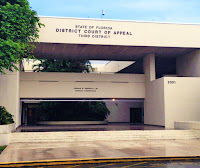Insurance Settlements: When is Payment Due?
It is a common misconception in Florida that insurance settlement checks are due 20 days after an insured submits an executed release. Florida Statute 627.4265 states: 627.4265 Payment of settlement.—In any case in which a person and an insurer have agreed in writing to the settlement of a claim, the insurer shall tender payment according to the terms of the agreement no later than 20 days after such settlement is reached . The tender of payment may be conditioned upon execution by such person of a release mutually agreeable to the insurer and the claimant, but if the payment is not tendered within 20 days, or such other date as the agreement may provide, it shall bear interest at a rate of 12 percent per year from the date of the agreement ; however, if the tender of payment is conditioned upon the execution of a release, the interest shall not begin to accrue until the executed release is tendered to the insurer. This statute makes clear that, where a w...
